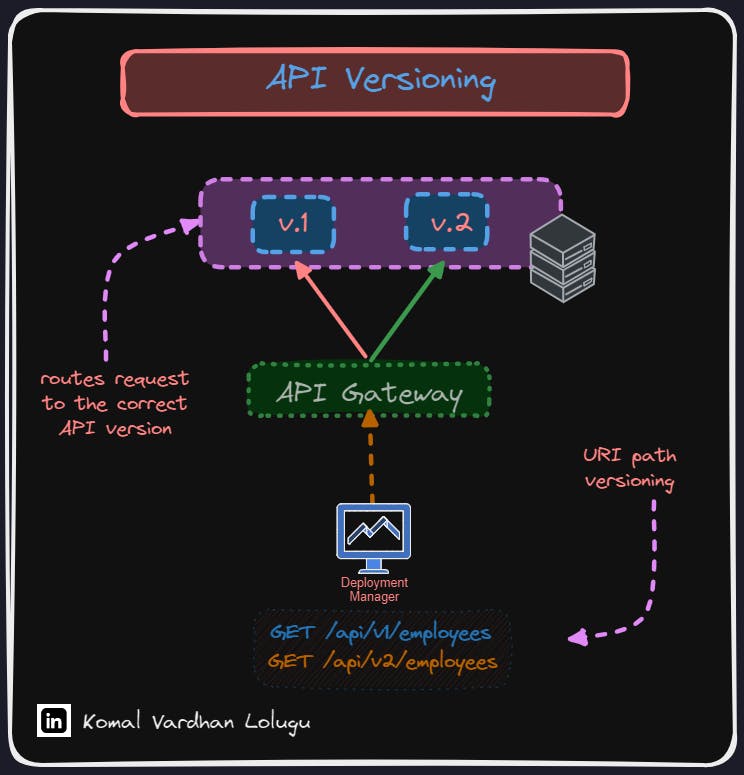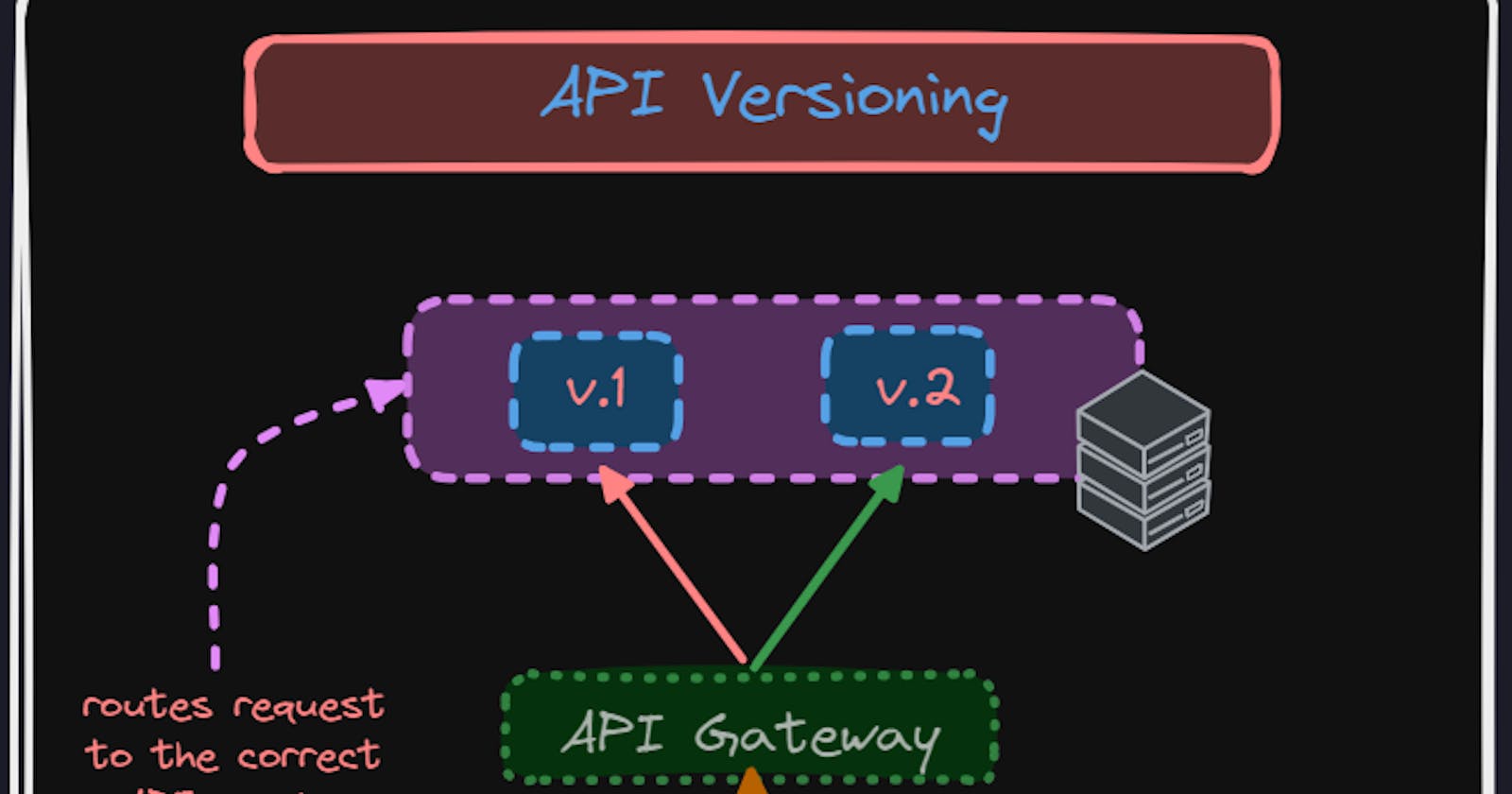🌟 Unlocking the Secrets of API Versioning: A Journey Through Compatibility and Innovation 🚀
What is API versioning?
API versioning is the process of managing and tracking changes to an API. It also involves communicating those changes to the API’s consumers.
Change is a natural part of API development. Sometimes, developers have to update their API’s code to fix security vulnerabilities, while other changes introduce new features or functionality. Some changes do not affect consumers at all, while others, which are known as “breaking changes,” lead to backward-compatibility issues, such as unexpected errors and data corruption. API versioning ensures that these changes are rolled out successfully in order to preserve consumer trust while keeping the API secure, bug-free, and highly performant.

What are the benefits of API versioning?
It’s essential for an API’s producers and consumers to stay in sync as the API evolves — regardless of whether it is private or public. An effective API versioning strategy not only enables API producers to iterate in a way that minimizes the consumer-facing impact of breaking changes, but also provides a framework for effectively communicating these changes to consumers. This transparency builds trust and — in the case of public APIs — strengthens the organization’s reputation, which can boost the API’s adoption and retention rates.
When should you version an API?
You should version your API whenever you make a change that will require consumers to modify their codebase in order to continue using the API. This type of change is known as a “breaking change,” and it can be made to an API’s input and output data structures, success and error feedback, and security mechanisms. Some common examples of breaking changes include:
Renaming a property or endpoint: You might sometimes want to rename a property or method so that its meaning is clearer. While clear naming is important from an API design standpoint, it’s almost impossible to change property or method names once the API is in production without breaking your consumers’ code.
Turning an optional parameter into a required parameter: As your API evolves, you may notice instances in which a certain input parameter should be mandatory, even though it was initially designed to be optional. While this type of change may help standardize inputs and make API operations more predictable, it will result in missing property errors for clients that are not programmed to pass a value for this property.
Modifying a data format or type: You may sometimes realize that several properties, such as firstName and lastName, should instead exist within a user object, instead of as separate properties that take string values. While this type of change would improve your API's design, it is nevertheless a breaking change that will cause a parsing exception.
Modifying a property’s characteristics: You may occasionally be tempted to change the rules for certain properties. For instance, a description property of type: string may have a maxLength rule that you discover is too low or too high. This type of change will have different results depending on its implementation, including database and UI errors.
What are some best practices for API versioning?
A haphazard approach to API versioning can lead to negative consequences for an API’s consumers and producers. The following best practices will help you avoid potential pitfalls and ensure the success of your API versioning strategy:
Design with extensibility in mind: It’s important to think strategically about versioning during the API design process. For instance, certain data types, such as booleans and arrays of atomics, are more vulnerable to breaking changes than others, so it’s best to omit them from your API design when possible.
Know your consumers: It’s important to understand how your consumers are using your API when you’re deciding whether to make changes. This involves being aware of the invisible API contract, which refers to unexpected implementations of your API. For example, consumers may access a property in an object by its index, rather than its property name. While this implementation was not intended by the API’s producers, it should nevertheless be accounted for during the versioning process.
Include a versioning policy in your terms of service: It’s important to let your consumers know how you’ll define a breaking change, when you’ll warn them about upcoming changes, and how long they’ll have to migrate to a new version. This practice is crucial for partner and public APIs — especially those that are monetized.
Decouple implementation versioning and contract versioning: When it comes to versioning, it’s important to consider the API’s implementation separately from its contract. For instance, if you rewrite a Node.js implementation in Rust, but the contract doesn’t change, you should not release a new version of the API.
Test thoroughly: Versioning is a major event in an API’s lifecycle, so it’s important to do everything you can to ensure it goes smoothly. Thorough testing during development and deployment helps confirm that the new version works as expected — without introducing any new issues for consumers.
Plan for deprecation: When developing a new version of an API, it’s important to consider how and when you’ll deprecate the old version. This involves establishing a deprecation policy, communicating the deprecation plan to consumers, monitoring usage of the old version as the deprecation date approaches, and finally, removing its servers and documentation. Careful deprecation planning and communication reduces the risk of surprises, keeps old instances from running for too long, and ensures consumers have enough time to transition to the new version.
Follow me for more such content @ https://www.linkedin.com/in/komalvardhanlolugu/

